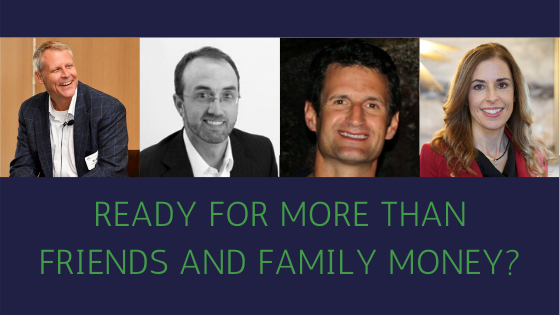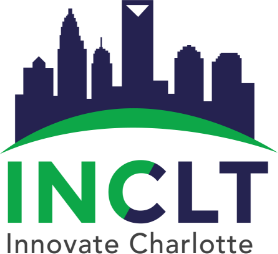Ready for more than friends and family money? Here’s what you need to know when you go in search of professional investment
Say your company has a prototype or product on the market, some traction among your target audience and some revenue coming in the door. The concept has been proven; now it’s time to scale.
That’s about the time many startups hit the pitch circuit, making their case to investors about why the company is worth their money and time. They recognize that scaling takes money — that if the friends-and-family round of fundraising was the foundation, the next round will provide the fuel.

In Charlotte, the number of companies that are ready to pursue the first round of professional investment is relatively small, said Rob Cummings, co-founder of DealCloud and managing director and CTO at Falfurrias Capital Partners.
“There are a lot of very interesting companies that are very early on in Charlotte, and there are others that have raised venture capital funding and are well on their way. But there’s not a ton right in the middle,” Cummings said.
It’s a symbol of Charlotte’s status as an up-and-coming startup city. As the Queen City gains notoriety in the larger entrepreneurial ecosystem, it’s something that will change, Cummings said. Companies will grow beyond those earliest stages. They’ll start gaining more traction and becoming more attractive to investors.
“It’s a cycle,” he explained. “And those companies are on their way.”
While every startup is unique, there are some questions they all must consider as they embark on the fundraising process. Here are a few, according to local investors and founders.
Do you know your stuff?
William Bissett is the founder and host of the Charlotte Angel Connection podcast in Charlotte. He’s become a voice for the startup ecosystem in Charlotte, inviting founders and investors and space into the studio for in-depth conversations on the local startup experience. To date, he’s hosted nearly 100 episodes, and in the process, he’s confirmed that fundraising in Charlotte isn’t easy.
“You’re going to be turned down, a lot,” he said.
Charlotte isn’t a startup hub. And while Charlotte has “boatloads” of money, the city doesn’t have any “dumb money,” as Bissett calls it.
What’s “dumb money”?
“When you go out to San Francisco or Austin or New York, some businesses sold for a billion dollars, and you’ve got 100 early employees who got well compensated through stock. Now, they have money, and they’re going to invest in startups because that’s what they know,” Bissett explains. “Here, there aren’t 100 people who made $10 million and are ready to just throw money at startups.”
That means startups have to earn the money they raise.
“When you’re presenting in front of folks, they want to make sure you know everything about the product. They want to make sure you know everything about your business, too. Your numbers have to make sense. You’ve got to know your market, and you’ve got to show some demonstratable knowledge of your end user,” he said. “Raising money can be done in Charlotte. It just has to be a really good fit.”
Do you really need the money?
Angel Rutledge meets with a lot of founders through her work as an investor, advisor and mentor to local startups. Many of them assume they’ll have to raise money as part of their entrepreneurial journey because it takes money to build a company, right?
But Rutledge advises them that raising money isn’t always the best course of action for a young company. She and her husband, Dan, for instance, bootstrapped SignUpGenius, an online event planning and volunteer management tool, until they sold a majority stake in the company to a private equity firm back in 2017.
“A lot of times, I’ll encourage founders to figure out how they can make progress in their business regardless of the funding they have. And there are so many ways to do that. We have the resources for that in Charlotte,” Rutledge explained.
Ventureprise is one, she said. NC IDEA grants are another, along with mentorship programs like the one offered through INCLT and office hours at Packard Place, where entrepreneurs can meet with a handful of successful founders for free.
“We have what’s needed in the ecosystem for many companies to get started without a round of funding. Bootstrapping a company is not easy. It’s definitely not easy, but honestly, it can be easier than getting on the path of raising money. There are strings attached to the money you raise,” she said. “When you take outside investment, you’re signing up for different challenges.”
Bootstrapping is not an option for every type of company, Rutledge added. But if it is, those companies will have a lot more flexibility and freedom.
“With every bit of equity, you give up your ability to make some choices,” she said.
If you do need the money, what are you willing to give up?
Matt McFee is a founding partner of BriteVerify, an email list verification platform, and a startup investor. In his experience, there is a factor to middle and late-stage investing that most founders don’t take into consideration.
Investors coming to the table with serious dollars will have demands. While most founders focus on matters of equity, many investors will also have thoughts on leadership. There’s a chance they’ll want the founder to step aside, in favor of bringing in their own leadership to push the company forward. They may stack a startup’s board with their own selection of advisors. And they may position themselves to have a stronger voice than their equity stake would imply.
McFee, a mentor with the INCLT mentorship program, calls it “the most undervalued result of a fundraise.”
That doesn’t have to be a bad thing, McFee added. For instance, when he was building BriteVerify, there came a point when he and his founding team realized they had taken the business as far as they could.
“It was time for us to walk and put it in the hands of someone who could do something greater,” said McFee, who exited BriteVerify in 2018 after it was acquired.
But it does require asking yourself in advance what you’re willing to do in exchange for investment.
“Maybe raising capital and taking a different seat in your company is something you’re willing to accept. Or maybe you decide you have to be the CEO and have at least this much equity,” McFee said. “But, if you’re an early-stage company that still has to prove you have a strong, valuable, scaled business, you don’t have the leverage you think you do.”
How do you find the money you need?
A good place to start, Cummings said, is by looking for people who have invested in your industry in the past.
“We were ultimately successful with a high-net-worth angel investor who lived in our business and had experienced the pain we were solving for. That was key to our success. So I’ll tell entrepreneurs, ‘Find someone who really knows the industry — experienced the challenges,’” Cummings said.
Those people could be part of the Charlotte Angel Fund, a powerful network of local angel investors. (Cummings and Rutledge both are.) The Charlotte Chamber of Commerce has put together a thorough list of local venture capital, private equity and angel firms, with contact information. Local accelerators such as Queen City Fintech can offer investment in startups that complete their programs. And Pitch Breakfast, a monthly pitch simulator hosted at Packard Place Uptown, can give entrepreneurs the practice they need to make their fundraising efforts more productive — and introduce them to valuable connections.
Regardless of the avenue a startup chooses to take, McFee agrees with Rutledge that startups should do whatever they can to come to the fundraising conversation from a position of strength.
“Find a way to get to the point where the business is affording itself. Then you can figure out the right way and from whom to raise money,” he said. “Anything you can do to be able to take your time and have a cash-flow-positive business going into a raise is the strongest advice I can give an entrepreneur.”
At INCLT, we are committed to serving Charlotte’s entrepreneurial ecosystem, through information, advice and mentorship. RMCSoft, a software development firm, supports those efforts by making these monthly articles possible.
If you’d like to do your part for local founders, you can sign up to serve as a mentor to a local founder. We are also accepting applications for founders in need of mentorship.
You can find more information here.
